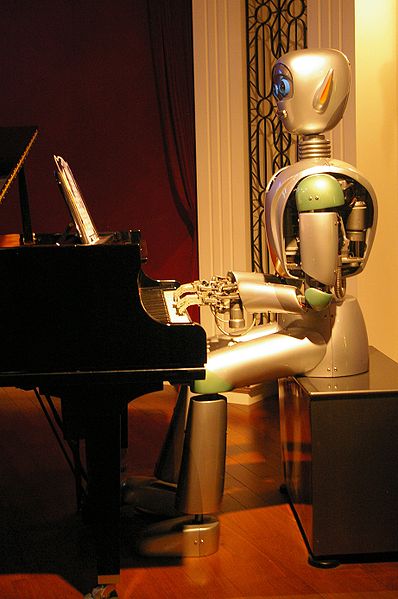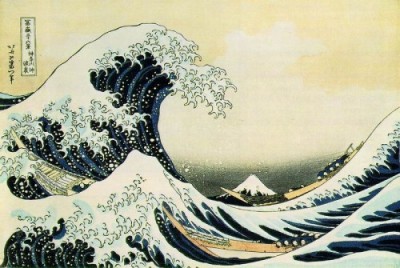bigthinkeditor

Released on the anniversary of Lincoln’s assassination, a new film directed by Robert Redford centers on the tension between civil liberties and national security.
As the single most-quoted author in the English language, it should not be much of a surprise that Shakespeare is often misquoted.
When the financial crisis struck, the ultra-cheap German supermarket chain Aldi saw an opportunity. It has been expanding rapidly in the US.
From low-tech gadgets enabling livelihoods in remote African villages to satellites that spy on human rights abusers, a look at some (not necessarily sexy) technologies shaping the future.
After its November launch, Kinect became the fastest-selling electronics device ever. It may be integrated into the Windows OS, leading to the Next Big Thing in web user experience.
A robot scientist has made a new biological discovery and many more might be possible if we simplified the language of science, the human scientist who led the development says.
A game-like environment will increasingly be innovation’s hothouse, the gamification industry claims. The World Bank has Evoke and UK government workers share ideas on Idea Street.
Researchers say they are ahead of schedule in a bid to discover (or disprove) the mysterious “God particle”–the stuff that makes stuff stuff. How else do objects get their mass?
China is moving more rapidly on renewable technologies and pushing ahead on emissions trading, while American initiatives are stuck in Congressional quicksand.
Japan acknowledges the Fukushima Daiichi plant crisis warrants the worst nuclear accident rating. The main threat now? Not a new explosion, but more earthquakes or tsunamis.
There are many reasons for us to visit Mars. A key motivation is that after Earth, it appears the most likely abode for life in our solar system. And there are some political factors.
Fifty years after Gagarin, plans abound for crewed missions into deeper space. A near-Earth asteroid landing, one-way trip to Mars, or hover point hiatus in mid-space, anyone?
The military is investigating the first-ever U.S. casualties due to drone warfare. Today Big Think takes a look at a day in the life of a drone operator and the psychological stress that remote warfare puts on our troops.
What can and should government do to protect personal data in the burgeoning digital economy? Should we have opt-in or opt-out rules? The former would inflict a consumer price.
Email marketing is considered unappealing and annoying for almost a third of recipients yet it is the biggest channel by far in the growing digital marketing sector in the Middle East.
Is chaos the natural order for the innately diverse and fragmented nature of music and its associated industry, asks singer-songwriter Catherine Hol.
We all know that social media played a big role in the recent revolutions in the Middle East. Here the BBC takes an interesting look at technology’s impact on protests in Britain.
Seth Godin claims we squandered the peace dividend available in the wake of the Cold War and asks if we are doing the same with the opportunities now offered by the digital age.
A laser fired from a US warship off the California coast has ignited a nearby boat. This is the first time that the high-energy laser (HEL) has been fired from […]
▸
with
The Beatles take on the roles of the “rude mechanicals,” performing the Pyramus and Thisbee scene from “A Midsummer Night’s Dream” in 1964.
▸
with
Though terms of a “road map” to peace in Libya are unclear, the African Union says Gaddafi has accepted conditions for a ceasefire between Libyan rebels and government troops.
On average, a brain’s short term memory can only hold between five and seven pieces of information at a time. Can steps be taken to expand the capacity of our memory—and our brains generally?
When asked to observe a man making mundane decision in his apartment, a sample of people placed greater emphasis on the importance of individual decision making in life.
Stanford University’s Susan McConnell explains brain development like “a play that follows a script, that is written down by the genetic code, performed by actors who “have never spoken their […]
▸
with
Henry V is perhaps the most famous (and complicated) leader in Shakespeare. Here, he is portrayed by Sir Laurence Olivier in his famously propagandistic 1944 film, meant to rally the […]
▸
with
Computer storage and software are already migrating to the cloud, and soon processing power will go virtual as well, making our mobile devices as powerful as supercomputers.





























